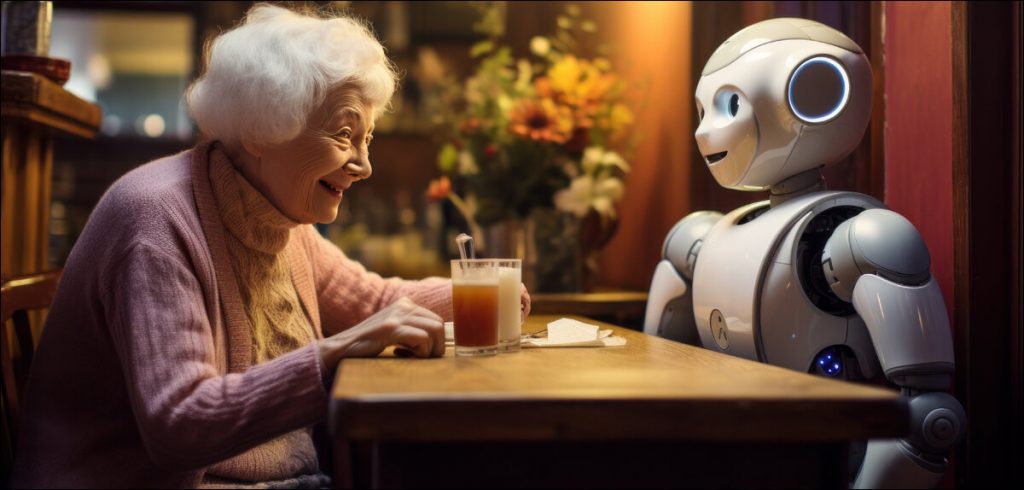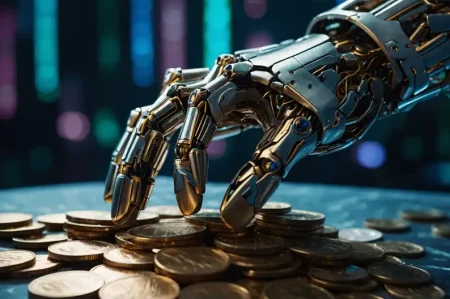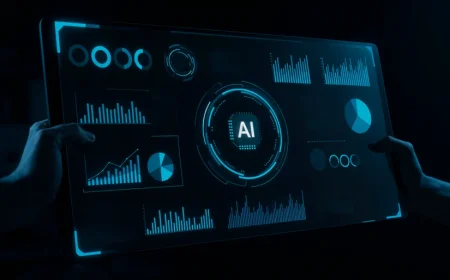In the age of automation, Adarsh explores whether artificial intelligence is the cause of increased loneliness or whether it can be the solution to the problem….
These days people seem to be using AI for everything. From being someone’s financial advisor to a personal assistant to giving legal counsel as well as assisting with education, artificial intelligence has been lending a helping hand to humans in almost every avenue. And now, while this saves time and increases efficiency, it comes at a cost. This also means the lack of human interaction.
While we turn to technology for all our needs, we are turning away from fellow human beings. So much so that, in November 2023, the World Health Organization (WHO) declared loneliness as a ‘global public health concern’. With Covid-19 resulting in less human interactions and increased screentime, the world is still struggling to realign to post-Covid realities.
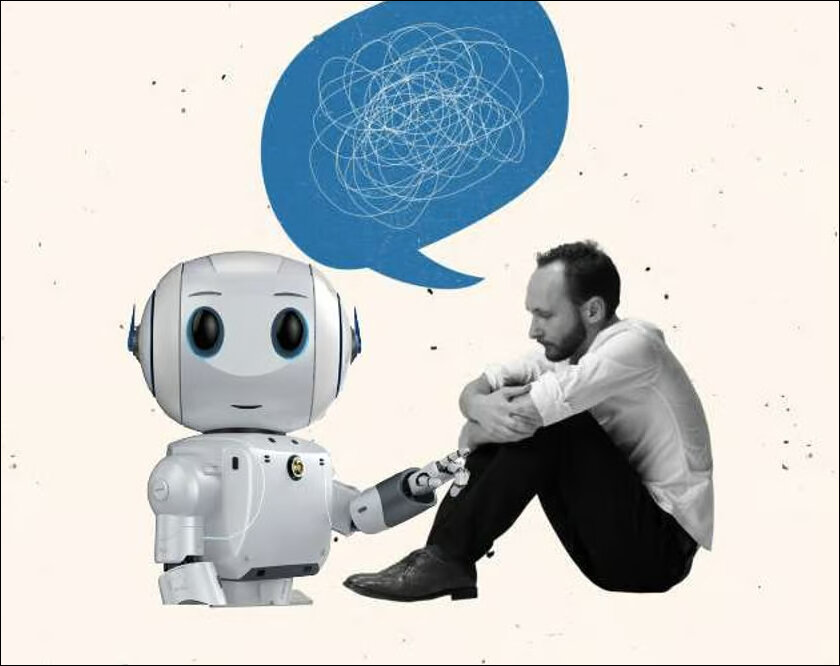
What the Numbers say?
Believe it or not, according to a 2023 health report, loneliness is more harmful to human health than obesity! Another report claims that loneliness increases the risk of premature death by 26% and is also linked with other health conditions such as anxiety, depression, dementia, stroke and even cardiovascular diseases.
The numbers get even scarier! Apparently, 3.8 million people in USA alone are experiencing chronic loneliness. According to a study by Harvard University, 36% of US adults – and 61% of young adults – experience serious loneliness.
US surgeon general Vivek Murthy believes that the impact that loneliness can have on mortality is the same as smoking up to 15 cigarettes a day. He also believes that not addressing the problem will result in the US “continuing to splinter and divide until we can no longer stand as a community or a country”.
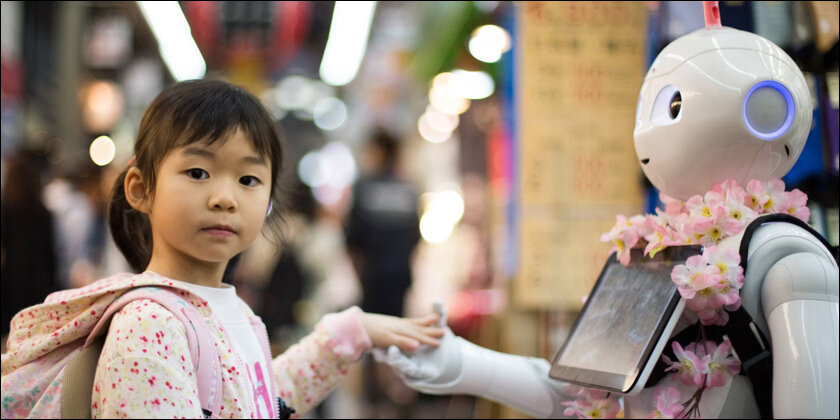
Why AI can help in battling Loneliness
Tony Prescott, a professor of cognitive robotics at the University of Sheffield, is considered the foremost expert in the relationship between humans and artificial intelligence. He combines his expertise in robotics and artificial intelligence with psychology and philosophy.
Prescott says that as we battle an epidemic of loneliness, AI can offer companionship to these lonely people. He recently released a book titled ‘The Psychology of Artificial Intelligence’ in which he writes that ‘relationships with AIs could support people with forms of social interaction’.
In the book, he continues: “In an age when many people describe their lives as lonely, there may be value in having AI companionship as a form of reciprocal social interaction that is stimulating and personalized. Human loneliness is often characterised by a downward spiral in which isolation leads to lower self-esteem which discourages further interaction with people.”
“There may be ways in which AI companionship could help break this cycle by scaffolding feelings of self-worth and helping maintain or improve social skills. If so, relationships with AIs could support people to find companionship with both human and artificial others.”
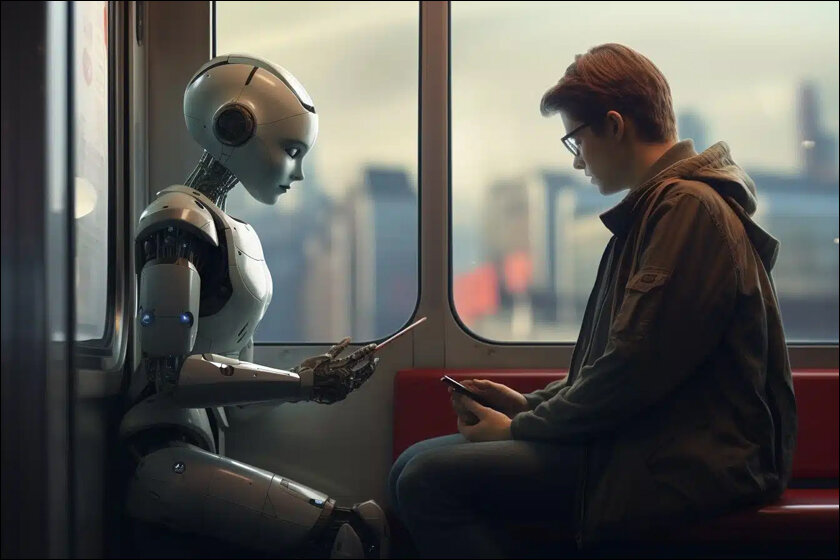
How AI works against Loneliness
Prescott likens using AI to combat loneliness to how people develop meaningful connections with pets or how children play with action figures and dolls. According to him, AI offers a partial solution as it stops loneliness from affecting one’s health.
How loneliness works is by making people feel disconnected and as a result of this their confidence drops. Artificial Intelligence offers an alternative by acting as a medium for people to practice and improve their social skills.
Talking to the Dead
A great example of how AI can help in the fight against loneliness emerged in 2020 in China when Yu Jialin, who was struggling to come to terms with the demise of his grandfather, used AI and Generative AI in an attempt to have all the conversations he wished he had with his grandfather while he was still alive. In a couple of years, he has refined the technology to a level where he was able to help others in China to cope with their losses.
All that is needed to create these responsive digital avatars is ChatGPT, AI Painting, and speech synthesis. It allows you to have a conversation with someone who may not exist anymore and usesrs have admitted that it brings them ‘psychological comfort.’
This trend of talking to the dead is similar to how people turn to digital girlfriends and AI therapy. The underlying void one is trying to fill in all these situations is loneliness and that’s where AI is providing an answer.
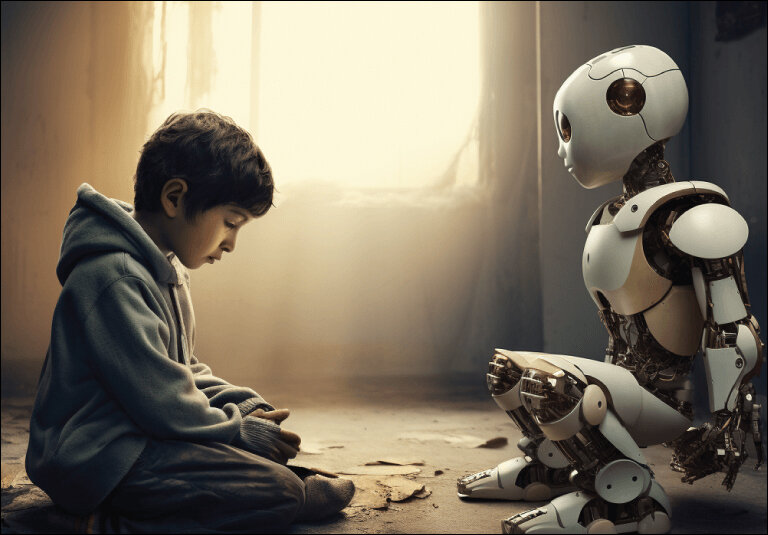
The Argument against AI
Prescott has also clarified that while AI can provide a partial solution to loneliness, an overindulgence can also cause problems. He warns that that several AI avatars could be ‘designed to encourage users to interact for longer and longer periods and to keep them coming back’. He suggests that regulations could be needed to ensure the situation does not get out of hand.
Sherry Turkle, a professor of social science at MIT, believes that fostering relationships with machines could backfire as this would reduce fewer interactions and meaningful relationships with fellow humans.
Christina Victor, professor of gerontology and public health at Brunel University, shares Turkle’s fears: “I doubt AI would address loneliness, and I would question whether connections via AI can ever be meaningful, as our social connections are often framed by reciprocity and give older adults an opportunity to contribute as well as receive.”
Murali Doraiswamy, professor of psychiatry and medicine at Duke University in North Carolina, also echoed her thoughts: “Right now, all the evidence points to having a close human friend as the best solution for loneliness. But until society prioritises social connectedness, robots are a solution for the millions of people who have no friends. We need to be careful to build in rules to ensure they are moral and trustworthy, and that privacy is protected.”
The Last Word
As is evident from all the aforementioned arguments, while AI has the potential to help humans cope with loneliness, it is definitely not the complete solution. Nothing can replace genuine human connections and the trick is to find the right balance between seeking solace in machine and confiding in fellow humans.
As we go further and further into the digital age and brace ourselves for more screentime and less human interactions, we have to use AI judiciously in our battle against loneliness to ensure that while it maximises benefits, it also minimizes potential harms.
In case you missed:
- Should Chatbots have Rights? Ethicality vs Practicality
- OpenAI finally unveils its Advanced Voice Assistant!
- OpenAI is now Focussing on Superintelligence!
- Cloudflare’s One-Click Solution for Image Verification
- The World’s First Global AI Treaty Signed in Vilnius
- Heavenly Bytes: Is AI the new Medium to God?
- Meta AI launches on WhatsApp & Insta in India
- 7 Online Scams to be Wary of in India
- Microsoft’s 2025 Work Trend Index reveals the rise of Frontier Firms
- How to spot a Deepfake Video



